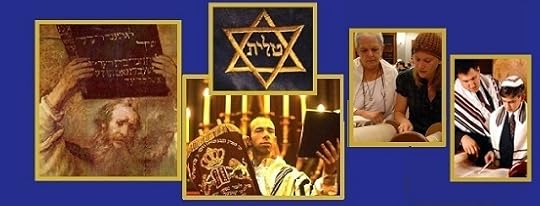Why the Jews Are Not the Enemies of the Church
Why the Jews Are Not the Enemies of the Church | Dr. John Lamont | HPR
It is not true, in any sense, that the Jews are the enemies of the Church, and the characterization of them as enemies is unjust
In a recent talk in Canada, Bishop Bernard Fellay, a member of The Society of Saint Pius X (FSSPX), stirred controversy by remarking that the Second Vatican Council was looked on favorably by the Jews, Freemasons, and Modernists, who are all enemies of the Church, and that this was a reason for objecting to the council itself. One should not read too much into Bishop Fellay’s remark itself, since it was a brief aside, and since he has never in the past expressed anything more than the basic Christian claims about Jews. The remark should, nonetheless, not have been made, and should now be corrected. It is not true, in any sense, that the Jews are the enemies of the Church, and the characterization of them as enemies is thus unjust. It is worthwhile explaining why this is so, because the belief that the Jews are enemies of Catholics was once widely held, and is still found in some circles. Priests will thus find it helpful to have a fairly comprehensive account of why the belief is wrong.
To show that the Jews are not the enemies of the Church requires an examination that addresses all the principal attacks on Jews that arise in discussion of this question.
One such attack maintains that the Jews are enemies of the Church in virtue of their religious beliefs. The religious beliefs in question are those of Rabbinic Judaism, which has been the dominant form of Jewish religious belief for the past two millennia. Rabbinic Judaism developed as a result of the destruction of the Temple in Jerusalem in A.D. 70, which removed the center of Jewish religious life. Some replacement for the Temple was required if Jewish religious existence was to continue. In the century or so after the destruction of the Temple, the study and observance of the Jewish Law was developed as this replacement.
The fundamental idea of the new structure of Jewish religion was that, in addition to the written law in the Pentateuch (the first five books of the Old Testament or the Torah: Genesis, Exodus, Leviticus, Numbers, and Deuteronomy), Moses received an unwritten law from God on Mt. Sinai, which was passed down by word of mouth through a succession of rabbis. This unwritten law was then supposed to have been committed to writing in the Mishnah—the collection of rabbinic traditions which supplements and systematizes the commandments of the Torah—which was completed around 200 A.D. The Mishnah contains laws on agriculture, festivals, marriage, civil and criminal law, ritual laws, and purifications. It is essentially an attempt to record and perpetuate the religious and legal views held by the scribes and Pharisees prior to the destruction of the Temple, together with inevitable covert extensions of these views. The difficulties of the Mishnah led to the composition of an authoritative commentary on it, the Gemara, completed in the 5th century, which exists in both Palestinian and Babylonian versions. The Mishnah and Gemara together make up the Talmud; the Babylonian version is the one generally used.
The reason why Rabbinic Jews are not enemies of the Church can be put briefly.
Carl E. Olson's Blog
- Carl E. Olson's profile
- 20 followers




